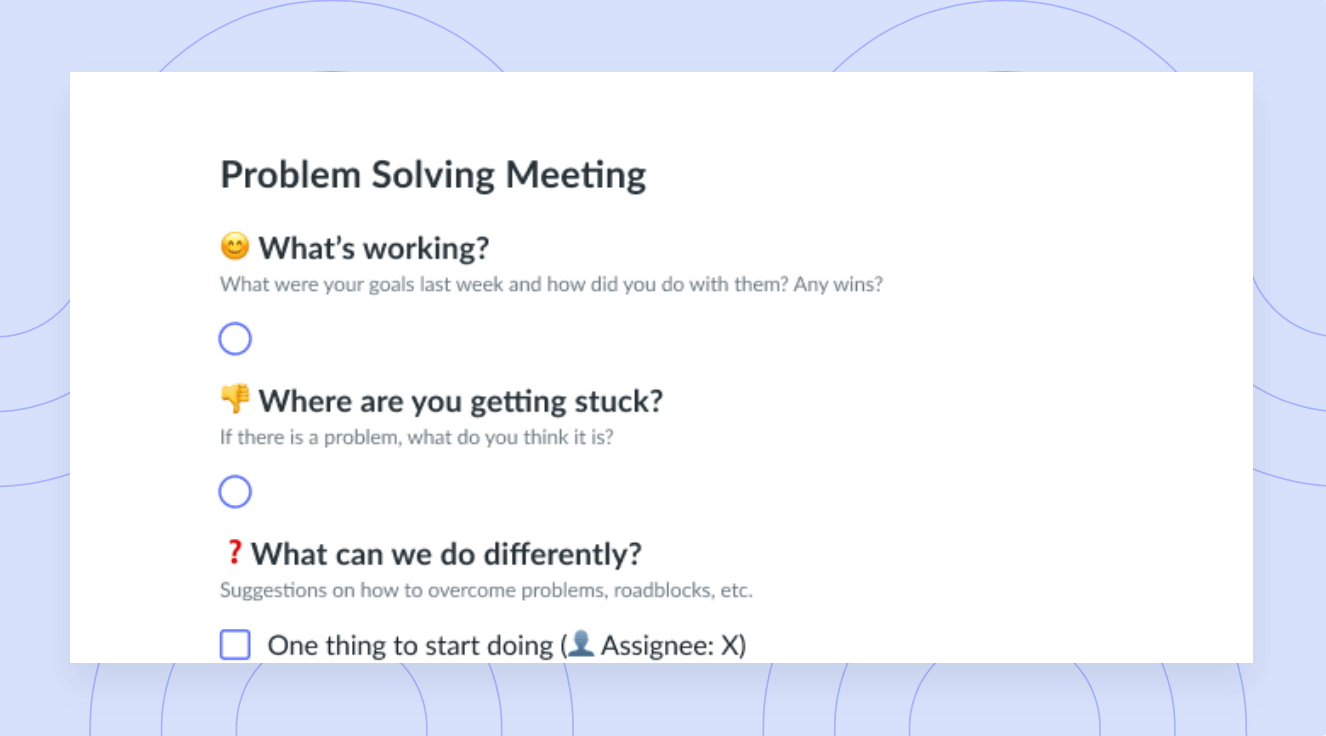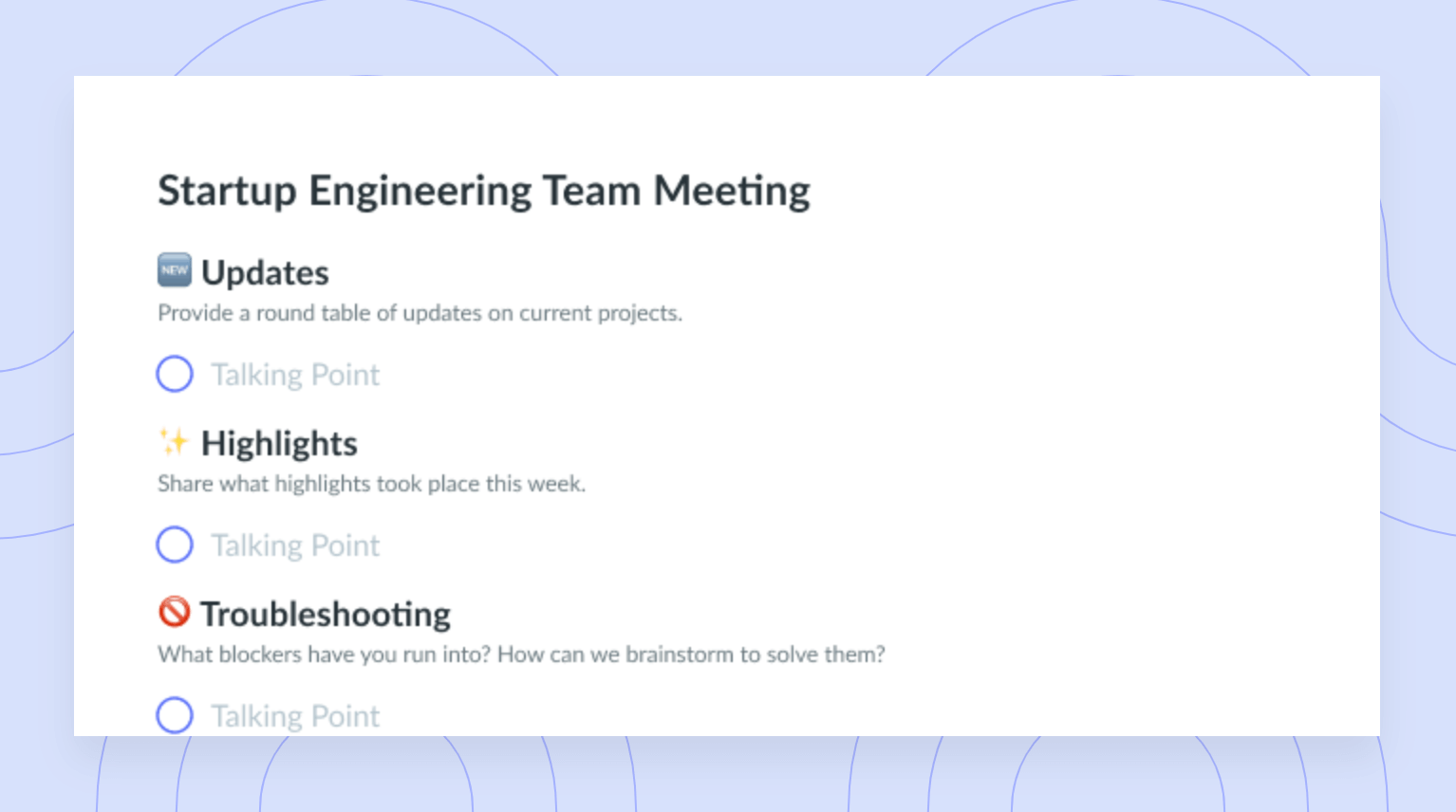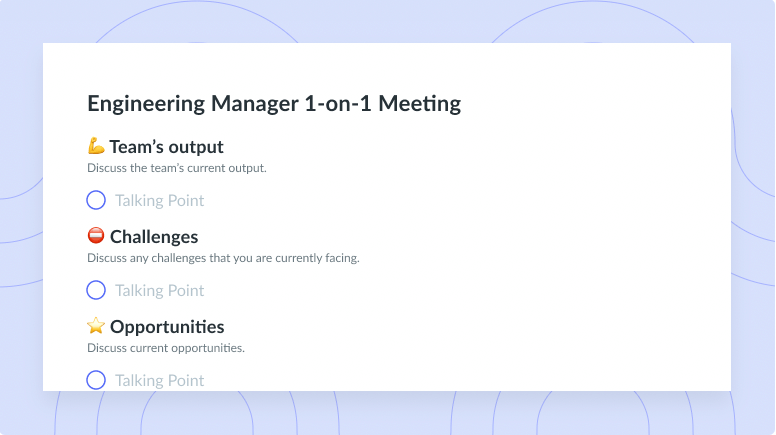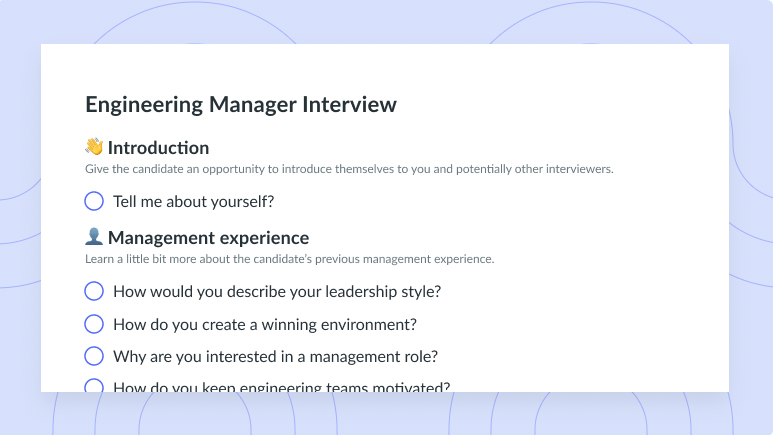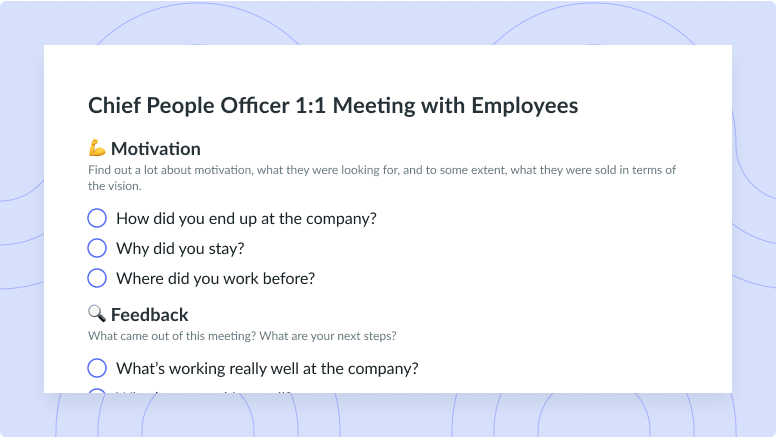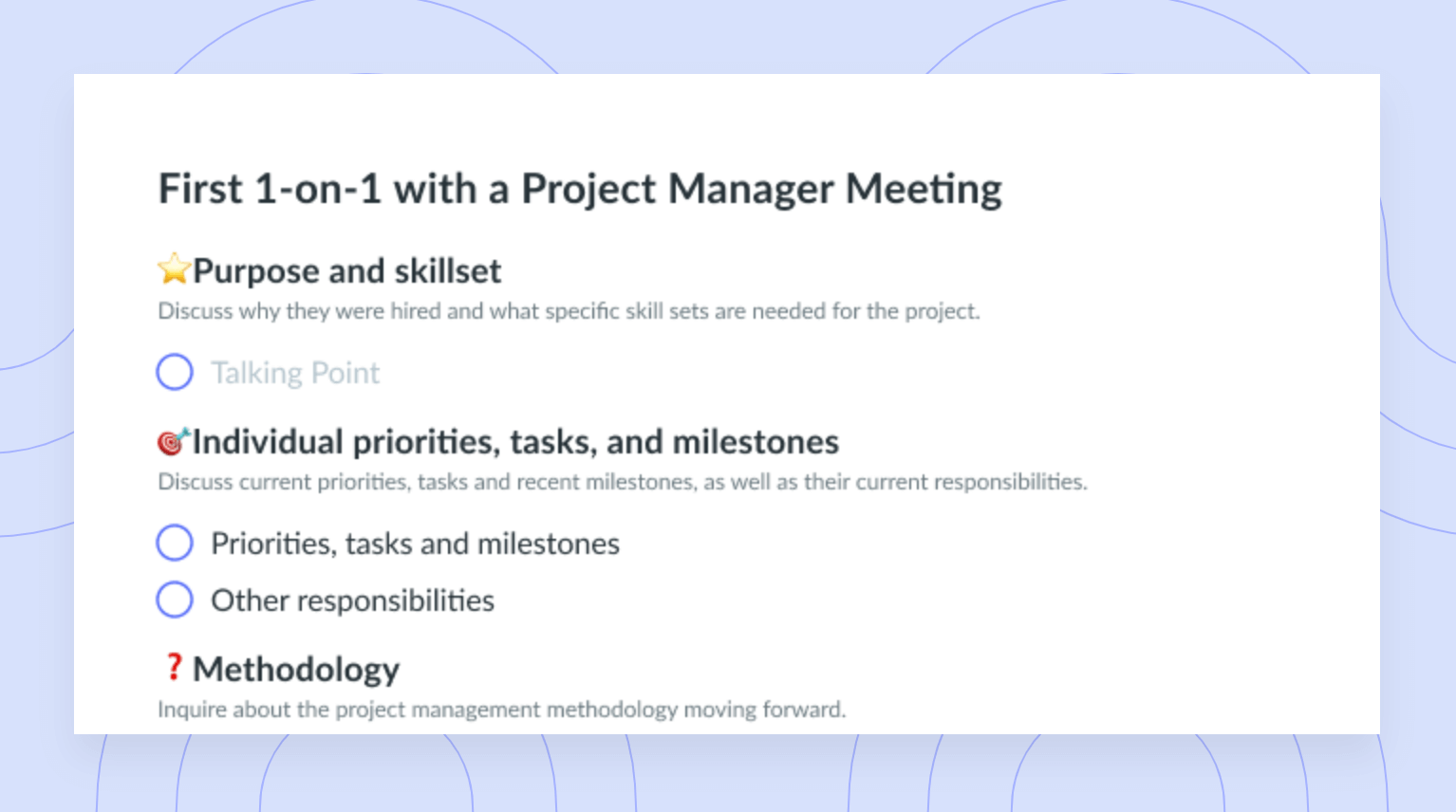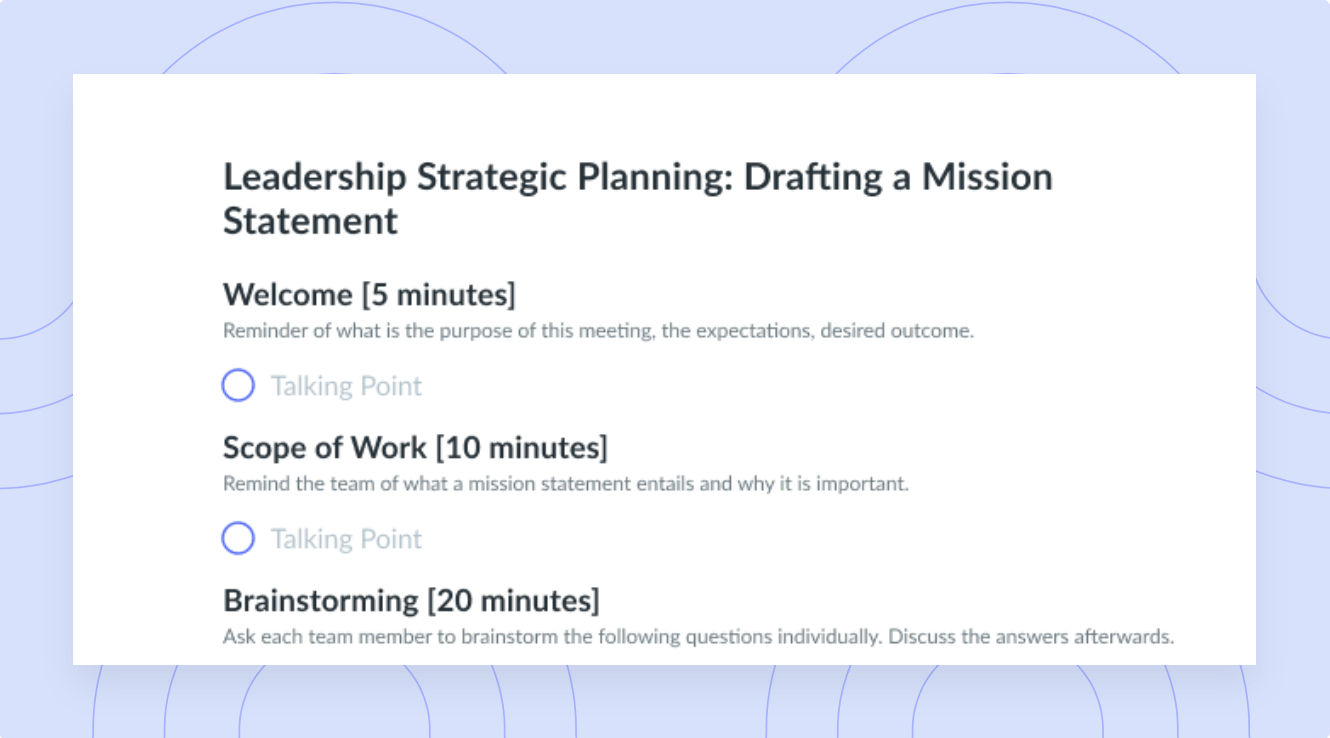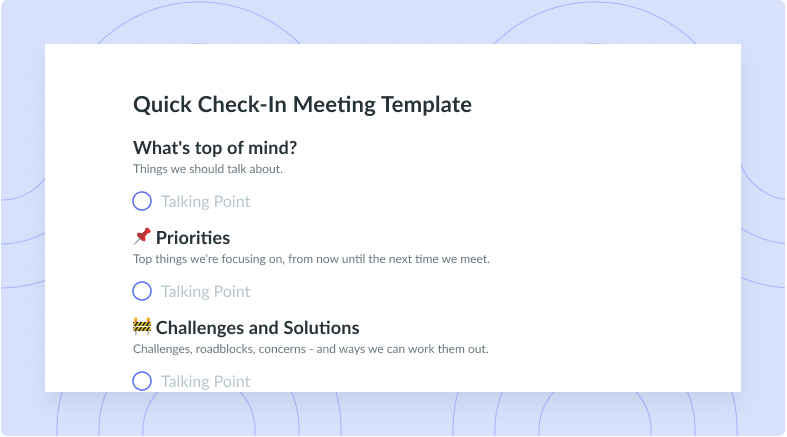Engineering Manager’s Key Responsibilities [+ FREE templates]
What does an engineering manager do? This article is a complete guide to decision making, problem solving, and leadership.
Engineering managers juggle people engagement, project management, and technical tasks. They are responsible for directing, planning, and coordinating activities, and supervising or managing a team of engineers. From holding team meetings, to guiding teammates, to creating playbooks, and leading projects, their day to day always looks different and their core responsibilities vary. At the core of everything they do is innovation as they constantly live in a world of research and development.
In this article, we’ll dive into the key responsibilities of an engineering manager so you can learn about decision-making, problem-solving, and leadership from an engineering manager’s perspective. You can expect to learn the ins and outs of crafting an engineering playbook, managing a team of engineers, hiring teammates, leading projects, communicating with other managers, and hosting one-on-ones.
- What do engineering managers do?
- Engineering manager’s duties and responsibilities
- Engineering manager’s skills
What do engineering managers do?
In a typical day, engineering managers balance a variety of responsibilities including directing, planning, and coordinating activities while supervising a team of engineers as they proceed through research and development. One of the most important skills that engineering managers need to possess is the ability to effectively delegate tasks. Everything an engineering manager does is in an attempt to deliver the best possible product the best way, with the best team. Continual maintenance, quality assurance, and problem-solving are at the core of everything they do.

Level up your engineering management skills
Build a culture of trust and give and receive feedback with regular one-on-ones. Try a tool like Fellow today for a collaborative one-on-one meeting agenda!
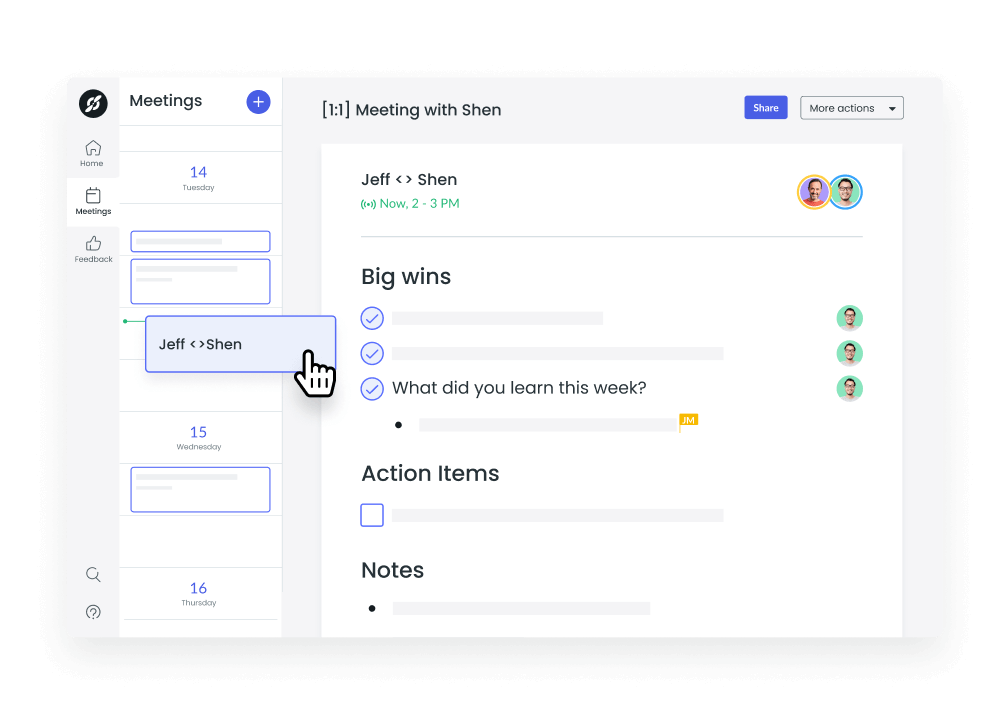
Engineering manager’s duties and responsibilities
- Hire employees
- Manage a team of engineers
- Lead projects
- Communicate with other managers
- Delegate tasks to their team
- Write the engineering playbook
- Hold team meetings
- Have regular one-on-ones
1Hire employees
The role of an engineering manager is all encompassing and entails a great deal of responsibility. One of an engineering manager’s many responsibilities is hiring employees. Engineering managers are usually responsible for managing a team, so they typically have the authority to hire and build their teams from the ground up. When making hires, engineering managers look for individuals who are analytical and ready to solve problems. In addition, engineering managers hunt for candidates who will mesh well with their existing team. Their main prerogative when making a hire will be ensuring the candidate aligns with the company’s goals, objectives, and values.
2Manage a team of engineers
As stated above, an engineering manager is usually responsible for managing or leading a team. This role entails making sure everyone is aligned, while ensuring the entire team is working towards a common goal. Engineering managers normally create goals and objectives or break their teams’ tasks down into weekly sprints. Doing so allows the engineering manager to assign tasks to engineering and technical personnel. The engineering manager will be responsible for leading their team in the development of new products, solutions, and processes.
3Lead projects
Leading projects is one of the most important duties of an engineering manager. Every manager is responsible for leading projects, and engineering managers are no exception. Engineering managers use their expertise to plan, direct, coordinate, and manage the development of new products, designs, processes, or offerings. Their responsibilities include, but are not limited to, leading the research and development phase of projects, creating thorough project plans and timelines, proposing budgets, managing staffing, and sourcing any goods or equipment that may be needed for the project.
4Communicate with other managers
As a manager or leader within your organization, you’re more than likely responsible for being the liaison between your teammates and other managers. Engineering managers are not only responsible for communicating with their respective teams, but they’re also responsible for prioritizing cross-functional communication with other managers. Engineering managers need to prioritize communication with other teams as the majority of their work will entail briefing stakeholders and facilitating cross-functional collaboration.
5Delegate tasks to their team
Delegation is key—not only for engineering managers, but all managers. If you try to take on everything yourself, you’ll start drowning and become overworked or even burnt out. Furthermore, engineering managers should make a point of surrounding themselves with skilled teammates who they can trust to do what they do best. Delegation and trust are both key when fostering strong working relationships.
Delegating effectively helps engineering managers save time and progress as leaders. Not only that, but delegation also fosters trust and helps to develop other team members. As an engineering manager, you’ll be more prepared to manage larger teams, while inspiring your employees and team members to perform better, if you delegate.
6Write the engineering playbook
An engineering playbook contains all the pieces and parts the engineering team may need to reference when doing their work. This document should serve as a reference and your teammates’ go-to approach. Engineering managers should not only write a playbook to document new processes, but also to account for process workflows, standard operating procedures, and cultural values. As an engineering manager, it’s extremely important that you develop a playbook that can be circulated amongst the engineering team to ensure they are aligned and have a point of reference for any projects on which they’re expected to be working.
7Hold team meetings
Like any manager or leader, engineering managers should host frequent team meetings. Team meetings give you and your teammates the opportunity to improve your problem solving, quality assurance, maintenance, and collaboration. To make your team meetings collaborative and inclusive, use a meeting agenda. Not only will your meeting agenda help you stay on track and organized, but it will also allow your team to participate in the entire organization process. Using a collaborative meeting agenda will help foster participation by creating a hub that encourages meeting attendees to add talking points and assign action items.
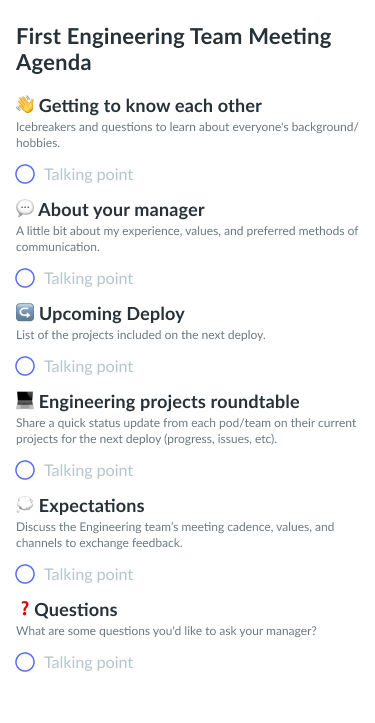
8Have regular one-on-ones
In most cases, how a team feels about their engineering manager dictates how they feel about the organization at large, which is why an engineering manager’s main prerogative should be to facilitate strong relationships with their peers. As Kim Scott—a former leader at YouTube, Google, and Apple—argues in the book Radical Candor, the most important thing managers can do to build a culture of trust is meeting with each of their direct reports on a regular basis, so regular one-on-one meetings are very important.
One-on-ones also provide a unique opportunity to give and receive regular feedback. Feedback is a gift, whether you have the opportunity to receive it gracefully or provide it. Providing valuable feedback will help your direct reports learn, grow, and flourish, while hosting frequent one-on-ones will provide your direct reports with the opportunity to provide you (as the engineering manager) with feedback.
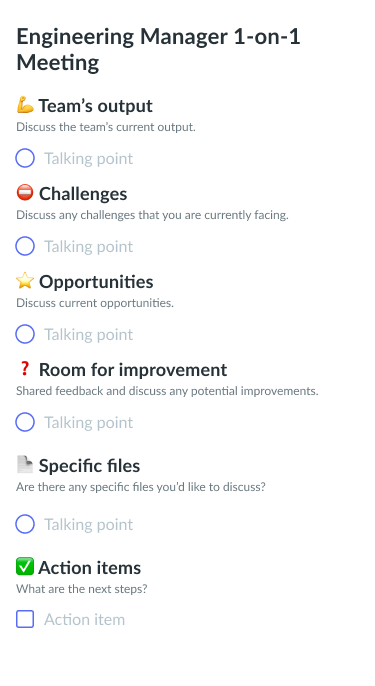
Engineering manager’s skills
Engineering managers are brilliant problem solvers with a knack for solving complexities. Their day-to-day varies but entails a mixture of people management, project management, and decision making. Crucial skills amongst engineering managers include, but aren’t limited to, communication skills, mathematical skills, organizational skills, detail-oriented skills, and leadership skills. Engineering managers boast a variety of skills and need to be well rounded to thrive in the workplace.
Parting advice
What does an engineering manager do? The answer isn’t a simple one. Engineering managers wear a variety of hats and need to be well rounded and multi faceted in their management approach. In addition to honing in on leadership and management, engineering managers also need to be technical savvy and solutions oriented. They’re always eager to grow and provide cutting-edge solutions.









